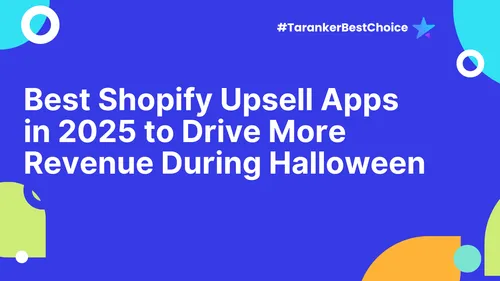In the rapidly evolving landscape of e-commerce, chatbots and virtual assistants have emerged as pivotal tools for enhancing customer engagement and streamlining operations. These AI-driven technologies offer personalized support, handle routine tasks, and significantly improve the overall shopping experience. This article delves into their definitions, benefits, functionalities, challenges, and showcases successful implementations within the e-commerce sector.
Definition and Benefits of Chatbots and Virtual Assistants

Chatbots are AI-powered programs designed to simulate human-like conversations with users, primarily through text or voice interactions. They can be integrated into websites, messaging apps, or mobile applications to assist customers in real-time.
Virtual Assistants are advanced AI systems capable of performing a broader range of tasks beyond simple conversations. They can manage schedules, provide personalized recommendations, and execute complex commands, often utilizing voice recognition and natural language processing.
Benefits in E-commerce:
-
24/7 Customer Support: Chatbots and virtual assistants provide round-the-clock assistance, addressing customer inquiries and issues without delay, thereby enhancing customer satisfaction.
-
Personalized Shopping Experience: By analyzing user data, these AI tools offer tailored product recommendations, increasing the likelihood of conversions and fostering customer loyalty.
-
Operational Efficiency: Automating routine tasks reduces the workload on human staff, allowing them to focus on more complex issues and strategic activities.
-
Cost Reduction: Implementing AI-driven support can lower operational costs by minimizing the need for extensive customer service teams.
How AI Enables Personalized Customer Support

Artificial Intelligence enhances customer support through several key technologies:
-
Natural Language Processing (NLP): Enables chatbots to understand and interpret human language, facilitating meaningful and contextually relevant interactions.
-
Machine Learning (ML): Allows systems to learn from past interactions and continuously improve their responses and recommendations.
-
Data Analytics: AI analyzes customer data, such as browsing history and purchase patterns, to anticipate needs and personalize interactions effectively.
By integrating these technologies, AI-driven chatbots and virtual assistants can provide immediate, accurate, and personalized responses, enhancing the overall customer experience.
Types of Tasks Handled by Chatbots and Virtual Assistants in E-commerce

In the e-commerce domain, chatbots and virtual assistants are equipped to manage a variety of tasks:
-
Order Processing: Assisting customers in placing orders, tracking shipments, and managing returns efficiently.
-
Product Recommendations: Suggesting products based on user preferences and browsing behavior, thereby enhancing upselling and cross-selling opportunities.
-
Customer Inquiries: Addressing frequently asked questions, providing information on product availability, pricing, and specifications.
-
Appointment Scheduling: Arranging consultations or service appointments, streamlining the booking process for both customers and service providers.
-
Feedback Collection: Gathering customer feedback post-purchase to inform business improvements and customer satisfaction strategies.
Challenges and Limitations
While the integration of chatbots and virtual assistants offers numerous benefits, several challenges persist:
-
Complex Query Handling: AI may struggle with understanding and resolving complex or ambiguous customer issues, necessitating human intervention.
-
Data Privacy Concerns: Collecting and processing customer data raises issues regarding data security and compliance with privacy regulations.
-
Integration Difficulties: Seamlessly incorporating AI systems into existing e-commerce platforms can be technically challenging and resource-intensive.
-
Maintaining Human Touch: Over-reliance on automation may lead to a lack of personal touch, potentially impacting customer relationships negatively.
Examples of Successful Implementation
Several e-commerce giants have effectively leveraged chatbots and virtual assistants:
-
Amazon's Rufus: An AI-powered shopping assistant that helps customers find products, provides recommendations, and answers queries, enhancing the shopping experience.
-
Pizza My Heart's "Jimmy the Surfer": A chatbot developed by Palona AI that allows customers to place orders via text, streamlining the ordering process and reducing staff workload.
-
Haptik's MyGov Corona Helpdesk: Developed for the Government of India, this chatbot provided COVID-19 related information to over 21 million users, showcasing the scalability of AI solutions in handling large volumes of inquiries.
For e-commerce merchants, particularly those utilizing platforms like Shopify, integrating chatbots and virtual assistants can lead to enhanced customer engagement, increased operational efficiency, and improved sales. However, it is crucial to address the associated challenges to fully capitalize on the benefits these AI-driven technologies offer.
Frequently Asked Questions (FAQs)
1. How do chatbots differ from virtual assistants in e-commerce?
While both are AI-driven, chatbots primarily handle specific tasks through text-based interactions, such as answering FAQs or processing orders. Virtual assistants, on the other hand, offer a broader range of functionalities, including voice interactions, managing schedules, and providing personalized recommendations.
2. Can AI-driven chatbots handle complex customer queries?
AI chatbots are proficient at managing routine inquiries and tasks. However, complex or ambiguous issues may require human intervention to ensure accurate and satisfactory resolutions.
3. What are the cost implications of implementing chatbots in an e-commerce platform?
The cost varies based on the complexity and capabilities of the chatbot. While there is an initial investment in development and integration, businesses often experience cost savings in the long term due to reduced operational expenses and improved efficiency.
4. How do chatbots ensure data privacy and security?
✔ Implement end-to-end encryption to secure customer data.
✔ Comply with GDPR, CCPA, and other data protection laws.
✔ Use AI-driven fraud detection to prevent unauthorized access.
✔ Clearly communicate privacy policies to build customer trust.
5. What are the best chatbot solutions for Shopify stores?
✔ Tidio – AI-powered chatbot with automated responses & live chat integration.
✔ Gobot – Helps with product recommendations and lead generation.
✔ Re:amaze – Combines AI chatbots, customer support, and FAQ automation.
✔ ChatBot.com – Offers advanced AI-driven customer service automation.
Final Thoughts: The Future of Chatbots in E-commerce
AI-powered chatbots and virtual assistants are transforming e-commerce by:
✔ Providing 24/7 customer support with instant responses.
✔ Enhancing personalization for improved customer engagement.
✔ Automating repetitive tasks, freeing up human resources.
✔ Driving higher conversion rates through AI-driven recommendations.
📌 Next Steps: If you run a Shopify store, consider integrating an AI chatbot to automate customer interactions and boost sales. Start with a basic chatbot solution, test its impact, and scale as needed.
🚀 Want expert help with AI-powered e-commerce solutions? Let’s optimize your Shopify store together!













